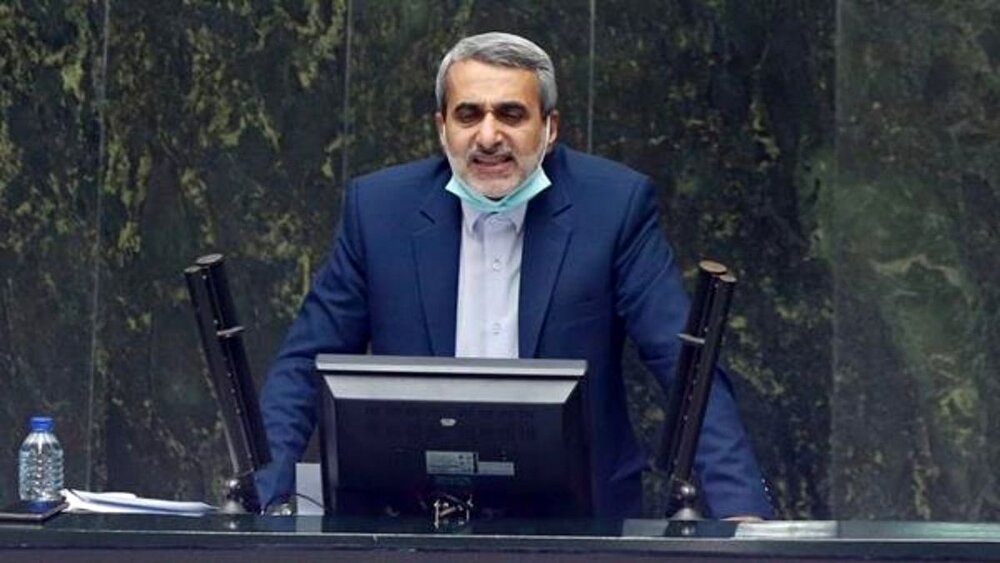Tehran asked EU to meet Iranian demands: MP

TEHRAN – A senior Iranian lawmaker has said that Iran has asked the West in its answer to the European draft nuclear agreement to meet Tehran’s demands.
The lawmaker, Abbas Moqtadaei, who is a member of Parliament’s National Security and Foreign Policy Committee, has provided some details about the Iranian response to the text submitted by the European Union on the 2015 nuclear deal known as the Joint Comprehensive Plan of Action (JCPOA).
Moqtadaei confirmed this point after MPs sitting on the Parliament National Security and Foreign Policy Committee held a three-hour meeting on Tuesday with the Secretary of the Supreme National Security Council (SNSC) Ali Shamkhani, Foreign Minister Hossein Amir Abdollahian, chief Iranian nuclear negotiator Ali Bagheri Kani and chief of the Atomic Energy Organization of Iran (AEOI).
“The meeting was attended by the Secretary-General of the National Security Council, and it was of great importance, because in the meeting held today (Tuesday), we studied Iranian views and visions, and a view was formed in order for the Council to be informed of the latest developments in this matter,” the lawmaker said in an interview with Al Alam.
Moqtadaei stressed that the Iranian parliament approved a strategic law on the rights of the Iranian people, and as it is known, it was America that withdrew from the nuclear agreement.
He noted that Iran had presented its response to the other side and stressed that its rights and guarantees should be taken into account.
Moqtadaei noted that it was premature to talk about the details of the Iranian response that was submitted to the European Union.
“In our response, we emphasized that the opposing party must meet Iran's demands and the rights of the Iranian people,” he said.
Moqtadaei stressed that the most important red lines that Iran stresses are the rights and interests of the Iranian people, and these rights and interests have long been adhered to by Iran and the other side has violated them.
He underlined that if the Western side takes the strict choice, “we will also take this choice.”
“We presented our vision clearly and transparently, and the other party must understand it and respond to it positively. We were and still are committed to international laws and norms,” he added.
Moqtadaei considered that Iran wants to ensure its supreme interests, and the West has gone through an experiment with it and found that Tehran does not abandon this responsibility.
He stated that Iran is on the path of the nuclear agreement, which will realize its interests, and the other side must unite its words with its actions.
Moqtadaei pointed out that the other side should stop violating its pledges, and that Iran's nuclear program is far from any ambiguity, as confirmed by the International Atomic Energy Agency.
He emphasized that Iran's nuclear activities have always been peaceful with distinction.
Moqtadaei added, “We are now standing at a station where Iran has taken its last political decision, but the other party has not reached this station with its political decision.”
The European Union had announced that it had received the Iranian response and that it was under consideration and consultation with partners including the United States, while Tehran stressed that it would not retreat from its red lines, regardless of whether an agreement was reached or not.
Members of the parliamentary Committee for National Security and Foreign Policy held a joint meeting on Tuesday with the Supreme National Security Council (SNSC) to study the draft nuclear text presented by the European Union.
Lawmaker Jalil Rahimi Jahanabadi wrote on his Twitter account that the meeting was attended by Shamkhani, Amir Abdollahian, Bagheri Kani, Mohamad Eslami.
He said in the meeting a complete report about the process of the Vienna talks and the views of EU foreign policy chief Josep Borrell, who acts as the coordinator of the JCPOA, coupled with the conclusion of Iran’s views of the draft nuclear text were assessed.
The meeting was held after Iran submitted its response to the EU on Monday at midnight.
“We will submit our final conclusion in black and white to the EU coordinator by 00:00 this night. If the U.S. response is realistic and flexible, a deal will be made. If the U.S. doesn’t show flexibility, then we should talk further,” Amir Abdollahian said on Monday.
Amir Abdollahian added, “We are exchanging messages with America on three issues... We told America that if our opinions on three issues, which are reasonable opinions, are respected, we are ready to enter the stage of announcing an agreement and hold a conclusion meeting.”
The Iranian foreign minister underlined the need for the U.S. to show flexibility, saying that Iran has already demonstrated a great deal of flexibility and that now it’s the U.S.'s turn to follow suit.
He said, “America knows very well how much flexibility we have shown, now it is the turn of the American side to be flexible. In the recent Vienna negotiations, the American side expressed its verbal flexibility on two issues. This should be in writing. On the third issue and guarantees, we must have America's flexibility. If America shows flexibility, we will reach a point of agreement in the coming days.”
In a report on Tuesday, the New York Times said European officials have said Iran’s response to the “final text” sent to the EU just before midnight Monday does not raise major new objections.
